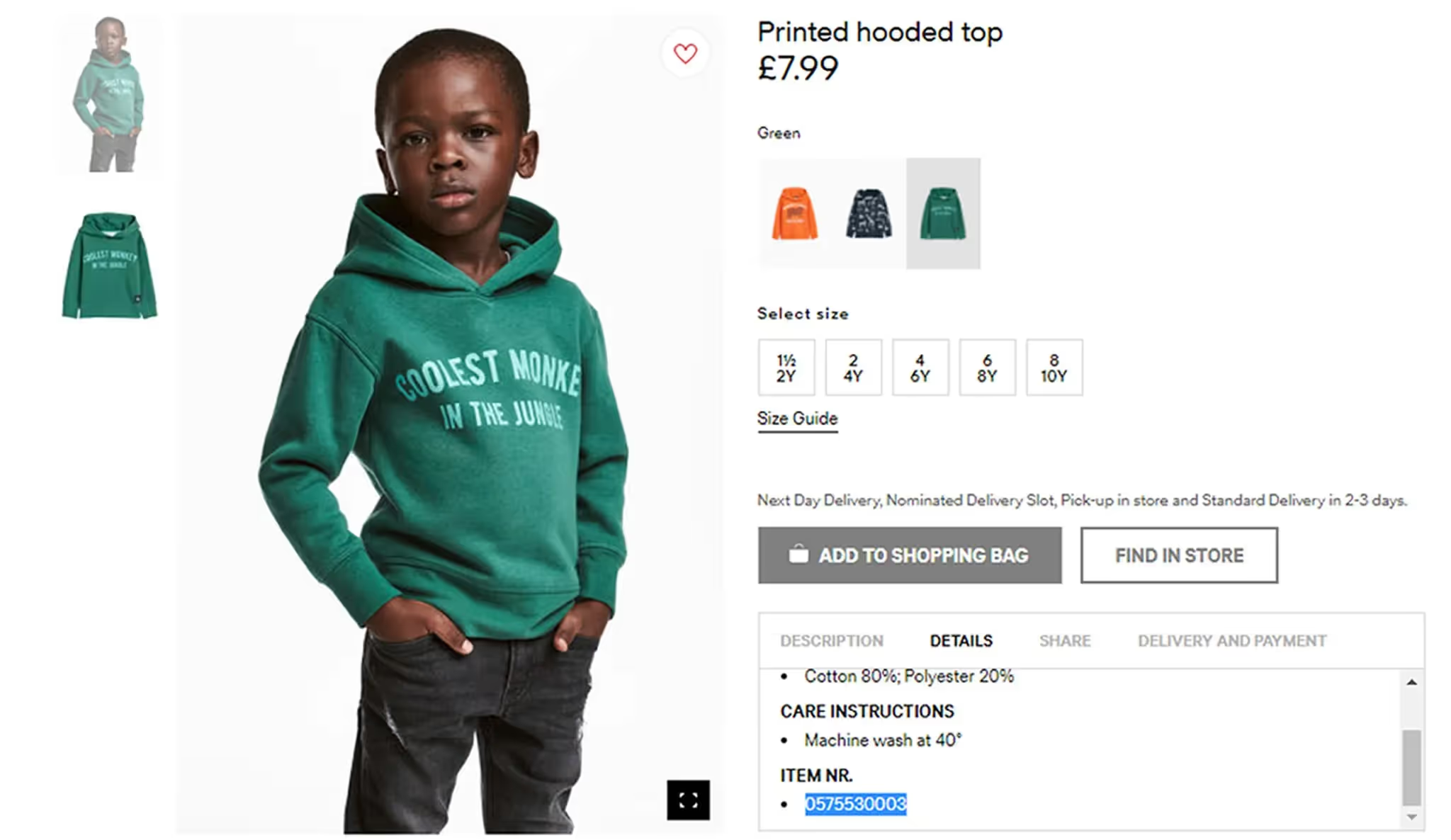In 2017, Pepsi launched a commercial featuring Kendall Jenner, aiming to align with the social justice movement. Instead, the ad was widely criticized for trivializing real social issues, leading to massive backlash, viral outrage, and a hasty takedown within 24 hours. The damage was immediate—brand credibility suffered, and Pepsi faced one of its biggest PR crises in recent years.
This incident is a stark reminder of how quickly public perception can shift in the digital age. A single ad, a social media post, or an influencer partnership can spark controversy, creating a ripple effect that damages brand reputation, consumer trust, and even revenue. Today, businesses don’t just need a marketing strategy—they need a brand safety strategy, too.
The challenge? Brands cannot control what people say about them, but they can decide who they partner with and ensure they are well-prepared to manage and mitigate risks. One of the most crucial aspects of this is influencer vetting—choosing brand ambassadors who align with company values and ensuring they do not pose reputational risks. This is where online reputation monitoring becomes essential.
What is Online Reputation Monitoring?
Online reputation monitoring is the process of tracking, analyzing, and managing brand mentions, sentiment trends, and potential risks across digital platforms. It provides actionable insights that help businesses understand how their brand is perceived, detect early warning signs of negative sentiment, and take action before a crisis escalates. By keeping an eye on online reviews, businesses can address negative reviews promptly, ensuring customer satisfaction and maintaining a positive brand image.
A brand’s reputation can be influenced by a wide range of online interactions—social media discussions, news articles, influencer partnerships, customer reviews, and even viral controversies. A single misstep or negative association can spread rapidly, making it essential for businesses to continuously monitor their brand’s presence and sentiment across multiple channels.

Key Components of Online Reputation Monitoring
Online reputation monitoring is crucial for maintaining a brand's online reputation and involves several key components. By leveraging these elements, businesses can effectively manage their reputation and respond swiftly to any potential threats.
Social Media Sentiment Analysis
Tracking brand mentions across platforms like Twitter, LinkedIn, YouTube, and Instagram is crucial in understanding how a business is perceived. By analyzing sentiment trends—whether positive, negative, or neutral—brands can detect shifts in public perception, including positive or negative mentions. Identifying patterns early helps companies take proactive measures before potential reputation risks escalate.
Influencer and Content Vetting
With the growing reliance on influencer marketing, businesses must ensure their partners align with company values. This involves evaluating influencers and brand ambassadors to avoid associations with controversial figures. Monitoring past content and sponsored content performance helps businesses mitigate risks and make informed collaboration decisions.
AI-Driven Risk Detection
AI-powered tools play a key role in identifying harmful, misleading, or controversial content linked to a brand. By leveraging machine learning and keyword analysis, businesses can flag potential threats and detect fake news or misinformation before they spiral out of control. This ensures brands maintain credibility and avoid reputational harm.
Crisis Management Alerts
Timely responses are crucial in mitigating PR crises. Setting up real-time notifications for sudden spikes in negative mentions allows businesses to react swiftly. Implementing custom risk scoring helps prioritize urgent issues, enabling PR and marketing teams to take immediate action to contain potential crises before they escalate further.
Why Online Reputation Monitoring Matters for Businesses
A brand’s reputation is one of its most valuable assets. In the digital age, public perception can shift in an instant, driven by viral content, influencer actions, customer reviews, and social media discussions. Online reputation monitoring is no longer optional—it’s a critical business function that protects brand credibility, ensures brand safety, and provides valuable market insights. By leveraging deeper insights from comprehensive market research, businesses can better understand their brand's standing and make informed decisions to maintain a positive brand image.
Protecting Brand Image and Customer Trust
Negative content spreads faster than ever. A single tweet, influencer controversy, or viral review can trigger a potential PR crisis, leading to lost trust and revenue.
Real-World Example: H&M’s Advertising Controversy (2018)
In 2018, H&M faced global backlash after an ad featuring a Black child wearing a hoodie with the phrase “Coolest Monkey in the Jungle” was released. Consumers and celebrities, including The Weeknd and LeBron James, called out the brand for insensitivity, leading to store protests, product boycotts, and a tarnished reputation. H&M had to issue multiple apologies, pull the ad, and promise stricter advertising oversight.

A crisis like this could have been avoided with better online reputation monitoring. If sentiment tracking tools had flagged early concerns around racial insensitivity in marketing, the company could have prevented the backlash before it escalated.
Brands that proactively track sentiment shifts and online conversations can manage their reputation effectively, ensuring customer trust remains intact and negative press doesn’t spiral out of control.
Ensuring Brand Safety in Influencer & Social Media Campaigns
Influencer marketing is a powerful tool, but it comes with risks. Brands that fail to vet influencers properly may find themselves associated with controversial, offensive, or misleading content, impacting their online reputation management efforts.
Real-World Example: Adidas and Kanye West (2022)
Adidas faced a massive reputation crisis when its long-term brand partner, Kanye West (Ye), made antisemitic remarks. The backlash led to widespread calls for Adidas to cut ties, and after significant public pressure, the brand ended its collaboration with the rapper. The decision cost Adidas an estimated $1.3 billion in unsold Yeezy inventory, showcasing the financial and reputational risks of associating with controversial influencers.

Had Adidas leveraged proactive influencer monitoring, early warning signs of Ye’s controversial behavior could have been flagged, helping the brand make an informed risk assessment before reputational damage escalated.
Tracking influencer content, audience sentiment, and past brand associations allows businesses to protect their reputation and prevent costly misalignments in marketing campaigns.
Mitigating PR Crises with AI-Driven Risk Detection
Many businesses don’t react to reputation threats until they go viral. But by then, the damage is done. Delayed responses to crises can lead to long-term brand distrust and revenue losses.
Real-World Example: United Airlines Passenger Removal Incident (2017)
In 2017, United Airlines faced a major PR crisis when a video surfaced showing a passenger being violently dragged off a flight due to overbooking. The footage went viral, sparking outrage against United’s handling of the situation. Instead of immediately addressing the backlash with a sincere apology and corrective action, United’s CEO initially defended the removal, calling it "re-accommodating passengers.”

The result? A major reputation hit, a stock drop of nearly $1 billion in market value, and a lesson in crisis management failures.
If United Airlines had real-time social listening and crisis alerts, they could have reacted more strategically, issuing a more empathetic response before the backlash intensified.
By setting up custom risk alerts and real-time tracking, brands can respond faster, take corrective action, and prevent reputational harm.
Competitive Intelligence & Market Insights
Reputation monitoring isn’t just about protecting a brand from crises—it also provides valuable insights into market trends, customer sentiment, and competitor reputation.
Real-World Example: Nike’s Colin Kaepernick Campaign (2018)
Nike took a bold stance by launching an ad featuring Colin Kaepernick, the former NFL quarterback known for kneeling during the national anthem to protest racial injustice. The campaign sparked polarizing reactions, with some consumers calling for a Nike boycott and burning their sneakers, while others praised the brand for standing up for social justice.

Nike’s reputation monitoring and sentiment analysis helped them track public reaction and strategically navigate the controversy. Instead of backtracking, they leaned into the message, ultimately seeing a 31% increase in online sales following the campaign’s launch.
By analyzing consumer behavior, competitor performance, and reputation trends, businesses can anticipate market shifts, strengthen their positioning, and stay ahead of potential threats.
How Phyllo’s Brand Safety Products Help in Reputation Monitoring
Brands need more than just traditional reputation management—they need proactive brand safety solutions that detect risks before they escalate. Phyllo’s AI-driven online reputation management tools help businesses monitor sentiment, track influencers, and mitigate potential crises across social media, digital platforms, and influencer campaigns.
AI-Driven Sentiment Analysis & Risk Detection
Phyllo leverages advanced AI technology to continuously scan digital content and identify potential risks before they become full-blown PR crises.
- Proactively flags potential threats by analyzing brand mentions, customer complaints, and negative sentiment trends.
- AI-powered analysis scans social media platforms, influencer content, and online discussions to detect shifts in sentiment.
- Keyword tracking and contextual analysis identify content that could be misleading, harmful, or controversial, ensuring brands are aware of potential risks in real time.
By integrating machine learning and pattern recognition, Phyllo helps brands stay ahead of negative press and emerging reputation threats.
Real-Time Social Listening & Crisis Alerts
A delayed response to a crisis can mean significant reputational damage. Phyllo’s real-time social listening ensures brands have a constant pulse on online conversations, allowing them to respond before an issue spirals out of control.
- Monitors brand mentions, audience sentiment, and risk keywords across platforms like Twitter, LinkedIn, YouTube, and Instagram.
- Provides a live dashboard for PR and marketing teams to track trends and sentiment shifts in real time.
- Automated risk alerts notify teams the moment a potential issue emerges, allowing for swift decision-making and crisis containment.
By providing instant visibility into brand-related discussions, Phyllo empowers businesses to control their narrative and safeguard their reputation effectively.
Influencer & Partner Brand Safety Vetting
Influencer marketing is a double-edged sword—while it can amplify brand reach, it also comes with the risk of association with controversial figures. Phyllo’s brand safety monitoring ensures that brands partner with reliable, trustworthy influencers who align with their values.
- Prevents brand associations with influencers who have a history of controversial, offensive, or misleading content.
- AI-powered influencer screening evaluates past content, audience sentiment, and engagement trends to assess potential risks.
- Customizable filters allow brands to set specific safety parameters to ensure that influencer collaborations align with brand identity and corporate values.
By proactively assessing influencer credibility, Phyllo helps brands avoid PR disasters and maintain trust with their audience.
Data-Driven Brand Safety Strategy
Beyond crisis prevention, Phyllo provides businesses with in-depth insights into their brand’s reputation trends, audience perception, and potential risk areas.
- Comprehensive sentiment reports track brand health, public perception, and risk factors.
- Historical trend analysis allows businesses to understand long-term shifts in reputation and audience sentiment.
- Continuous brand monitoring ensures businesses can make data-backed decisions that protect and strengthen their reputation.
With Phyllo’s AI-driven analytics and continuous monitoring, businesses can move from reactive crisis management to proactive brand safety, ensuring long-term credibility and trust-building.
Reputation Management Wrap-Up
Today, brands must be proactive about protecting their reputation. The rapid spread of information means that negative sentiment, influencer controversies, or PR crises can escalate within hours, making online reputation monitoring and the use of reputation management tools a necessity rather than an option. Businesses that invest in AI-driven monitoring tools like Phyllo can track sentiment, detect risks early, and safeguard their brand identity effectively.
By integrating continuous brand monitoring with AI-powered insights and real-time crisis detection, businesses can stay ahead of threats, maintain customer trust, and navigate an ever-changing digital landscape with confidence using advanced reputation management tools.
Ready to Protect Your Brand's Reputation?
Schedule a demo today to see how Phyllo can help you monitor sentiment, vet influencers, and protect your brand across all digital platforms. Take the first step towards a safer, more secure brand reputation.
%20(1).webp)

.avif)








.avif)
.avif)
.avif)